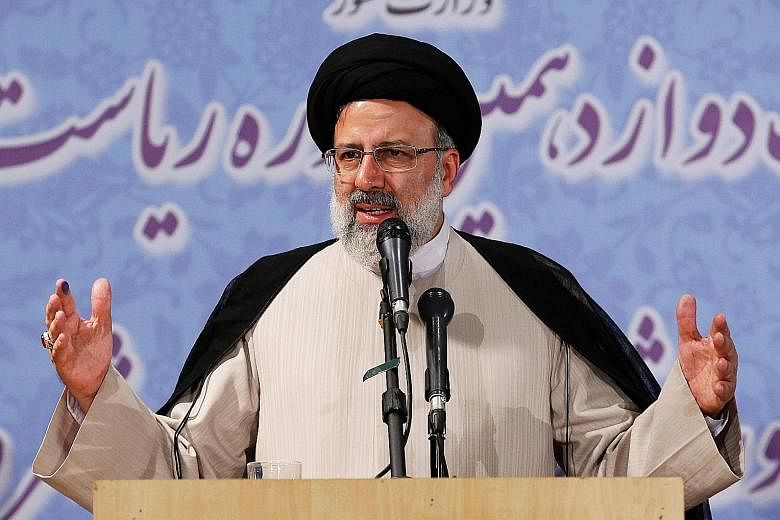TEHERAN • Mr Ebrahim Raisi, the leading candidate for Iran's hardliners in next month's presidential election, has left many wondering whether the country's fragile opening to the West could be under threat.
The 56-year-old judge and cleric registered on Friday for the May 19 vote. His candidacy is being closely watched by foreign investors and diplomats, who fear that the return of a hardline administration could threaten Iran's 2015 nuclear deal with world powers and efforts to open up trade.
So far, Mr Raisi has given little indication of his views on foreign policy, keeping his comments vague and predictable.
"Our relations will be ongoing with every country - except the occupying regime of Israel - but on condition of respect," he said.
Analysts described Mr Raisi as utterly loyal to Supreme Leader Ayatollah Ali Khamenei, meaning he would likely remain deeply suspicious of engagement with the West, but unlikely to backtrack on the nuclear deal - which had the boss' tacit consent.
"He has no experience in foreign policy, so at least initially he will have to follow the system's grand strategy of preserving the nuclear deal and shifting any blame of undermining it to the US," said International Crisis Group Iran analyst Ali Vaez.
Mr Raisi is entrenched in the conservative establishment.
He has served as attorney-general, supervisor of state broadcaster IRIB and prosecutor in the Special Court for Clerics.
Press reports indicate that he had recently been elevated to the status of "Ayatollah".
His father-in-law leads Friday prayers in Mashhad, in north-eastern Iran. Both Mr Raisi and his father-in-law have seats on the Assembly of Experts that will choose the next supreme leader - a position for which Mr Raisi himself is often rumoured to be in the running.
There is also little chance that he will ease social restrictions or release opposition leaders held under house arrest since the 2009 protest movement, known to conservatives as "the sedition".
Said Mr Raisi in 2014: "The Islamic System has treated the heads of the sedition with mercy.
"Those who sympathise with the heads of sedition must know that the great nation of Iran will never forgive this great injustice."
AGENCE FRANCE-PRESSE

